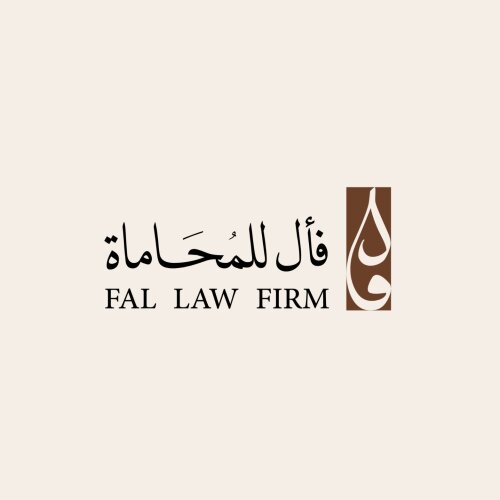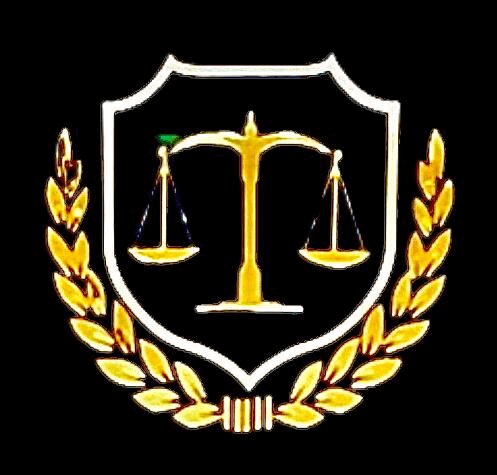Best Sanctions & Export Controls Lawyers in Riyadh
Share your needs with us, get contacted by law firms.
Free. Takes 2 min.
List of the best lawyers in Riyadh, Saudi Arabia

About Sanctions & Export Controls Law in Riyadh, Saudi Arabia
Sanctions and export controls are critical legal frameworks that regulate the transfer of goods, technology, services, and resources from Saudi Arabia to international markets. In Riyadh, these laws are robustly enforced to comply with both local regulations and internationally recognized obligations. Sanctions generally refer to government-imposed restrictions targeting specific countries, entities, or individuals for political, economic, or security reasons. Export controls, on the other hand, manage what items, technology, or intellectual property can legally leave Saudi Arabia and under what circumstances. These laws are designed to protect national security, support international diplomacy, and ensure compliance with Saudi Arabia’s global commitments.
Why You May Need a Lawyer
Navigating sanctions and export controls is often a complex process that requires specialized legal expertise. Here are common situations where you might need a lawyer:
- You are an individual or business planning to export goods or technologies from Riyadh and need to ensure compliance with the law. - Your company operates across borders and is concerned about inadvertently violating sanctions. - You have received a notice from Saudi authorities regarding possible sanctions or export control violations. - You are involved in trade or contracts with countries, entities, or individuals that may be subject to restrictions. - You need advice on structuring transactions or supply chains to honor Saudi export regulations. - Your business needs to develop compliance programs and internal controls to manage legal risk. - You are facing penalties or enforcement actions and require defense and representation. - Your industry is subject to frequent changes in international export regimes and you require ongoing legal guidance. - You are dealing with government tenders that involve export-sensitive materials. - You have questions about dual-use items or items that might fall under controlled categories.
Local Laws Overview
Saudi Arabia has established a legal framework that governs sanctions and export controls both through domestic legislation and by honoring binding international agreements. Notable points include:
- The Saudi Export Control Authority (SECA) oversees the licensing and compliance process for exports from Saudi Arabia. - Export of strategic goods, dual-use items, and technologies is strictly regulated; export permits are often required. - Saudi Arabia implements United Nations Security Council sanctions, as well as other international obligations. - Certain countries, groups, and individuals are subject to sanctions that can affect trade, financial transactions, and provision of services. - There are criminal and civil penalties for non-compliance, including fines, loss of exporting privileges, and possible imprisonment. - The legal regime is updated periodically in response to global developments, and up-to-date compliance is critical. - Due diligence is required not only for the goods exported but also for the end users and destinations. - Companies must screen their transactions and partners regularly to avoid inadvertent breaches. - Exporters may need to maintain records, submit reports, and pass inspections by regulatory authorities. - Legal restrictions may apply to technology transfers, re-exportation, and sharing of sensitive information with foreign nationals.
Frequently Asked Questions
What are export controls in Saudi Arabia?
Export controls are laws and regulations that restrict the movement of certain goods, technologies, or services from Saudi Arabia to foreign countries. They exist to protect national security, support foreign policy objectives, and comply with international commitments.
Who administers sanctions and export controls in Riyadh?
The Saudi Export Control Authority oversees export controls, while various government agencies, including the Ministry of Foreign Affairs and the Central Bank, administer sanctions enforcement.
Which items are typically controlled for export?
Items that are often controlled include military goods, dual-use items with civilian and military applications, sensitive technologies, chemicals, and advanced communication equipment.
What are dual-use items?
Dual-use items are goods, software, or technology that can be used for both civilian and military purposes. Exporting these items from Saudi Arabia usually requires special licenses and oversight.
Do Saudi sanctions apply to transactions with individuals as well as countries?
Yes, sanctions can target not just countries, but also specific organizations, businesses, or individuals. It is essential to review not only the destination but also the parties involved in any transaction.
What are the penalties for violating export controls in Riyadh?
Penalties for violations may include substantial fines, loss of export privileges, criminal prosecution, and public blacklisting for both individuals and companies.
How can I check if a product requires an export license?
You can consult the Saudi Export Control Authority for a detailed list of controlled items and licensing requirements, or seek legal advice to conduct a full compliance assessment.
Is it necessary to have a compliance program for export controls?
While not always legally required, it is strongly recommended for organizations engaged in exporting. A robust compliance program helps avoid violations, demonstrates goodwill to authorities, and mitigates legal risk.
What role do international sanctions play in Saudi Arabia?
Saudi Arabia observes international sanctions, particularly those sanctioned by the United Nations Security Council. These are integrated into domestic law and must be followed by all residents and businesses.
Can a lawyer help in obtaining export licenses?
Yes, a lawyer with expertise in sanctions and export controls can assist with compiling documentation, submitting applications, liaising with authorities, and ensuring all legal obligations are met efficiently.
Additional Resources
For further assistance, you may find the following organizations helpful:
- Saudi Export Control Authority (SECA): The primary regulatory body for export controls. - Ministry of Foreign Affairs: Information on international sanctions and diplomatic directives. - Customs Authority: Guidance on export procedures and inspections. - Ministry of Commerce: Updates on trade regulations and compliance requirements. - Chamber of Commerce and Industry in Riyadh: Education, support, and legal updates for businesses. - Accredited law firms specializing in international trade, sanctions, and export controls.
Next Steps
If you believe you need legal assistance with sanctions or export controls in Riyadh, consider the following steps:
- Identify and articulate your specific concerns, such as new export initiatives, compliance questions, or enforcement notices. - Gather all relevant documents, such as contracts, correspondence, and licensing materials. - Reach out to a qualified lawyer or law firm familiar with Saudi sanctions and export control regulations. - Consider arranging an initial consultation to evaluate the scope of your legal needs and possible solutions. - Follow legal advice closely to ensure compliance and minimize risk, and establish ongoing monitoring of relevant laws and updates. - If applicable, develop or update internal compliance programs to align with current laws and best practices. - Stay proactive and maintain communication with regulatory authorities to address issues before they escalate.
Sanctions and export controls in Riyadh are complex and evolving. An experienced lawyer can help you navigate these regulatory waters effectively and protect your interests.
Lawzana helps you find the best lawyers and law firms in Riyadh through a curated and pre-screened list of qualified legal professionals. Our platform offers rankings and detailed profiles of attorneys and law firms, allowing you to compare based on practice areas, including Sanctions & Export Controls, experience, and client feedback.
Each profile includes a description of the firm's areas of practice, client reviews, team members and partners, year of establishment, spoken languages, office locations, contact information, social media presence, and any published articles or resources. Most firms on our platform speak English and are experienced in both local and international legal matters.
Get a quote from top-rated law firms in Riyadh, Saudi Arabia — quickly, securely, and without unnecessary hassle.
Disclaimer:
The information provided on this page is for general informational purposes only and does not constitute legal advice. While we strive to ensure the accuracy and relevance of the content, legal information may change over time, and interpretations of the law can vary. You should always consult with a qualified legal professional for advice specific to your situation.
We disclaim all liability for actions taken or not taken based on the content of this page. If you believe any information is incorrect or outdated, please contact us, and we will review and update it where appropriate.
















